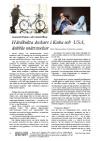Hårdkokta deckare i Kuba och USA, dubbla måttstockar

| Upphovspersoner: | José Manzaneda | Eva Björklund |
|---|---|
| Utgivare: | Svensk-Kubanska Föreningen |
| Tidskrift/källa: | Tidskriften Kuba |
| År: | 2018 |
| Ämnesord: | Kuba, Spanien, Litteratur, Samhällskritik, Deckare, Journalism, Opinionsbildning |
